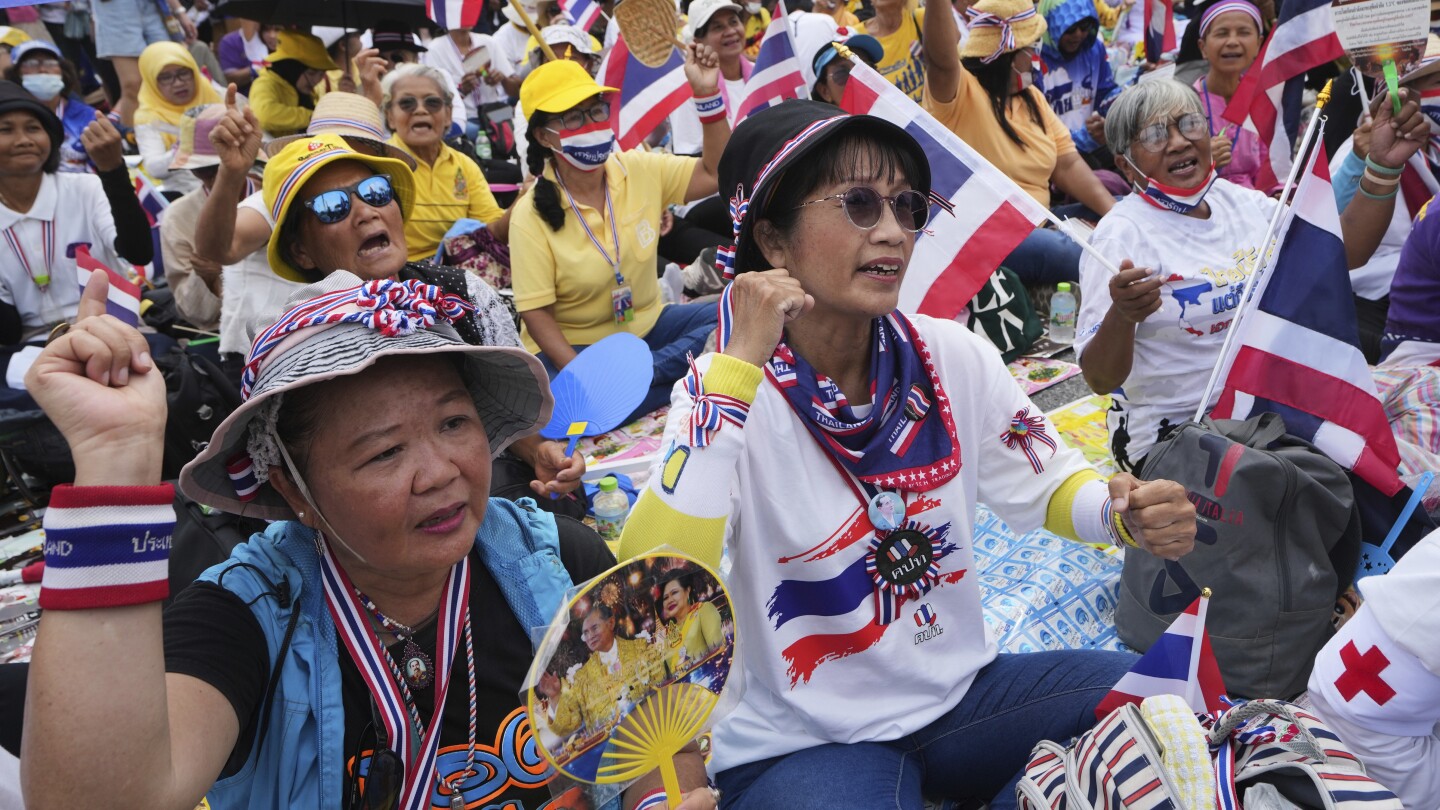BANGKOK — Hundreds of protesters gathered in Thailand’s capital on Saturday, calling for the resignation of Prime Minister Paetongtarn Shinawatra. The political unrest follows a leaked phone call with former Cambodian Prime Minister Hun Sen, which has ignited investigations that could lead to her ousting.
Immediate Impact
The protest, centered around the Victory Monument in Bangkok, saw demonstrators waving national flags and holding signs. They expressed dissatisfaction with Paetongtarn’s handling of a recent border dispute with Cambodia, which escalated into an armed confrontation on May 28, resulting in the death of a Cambodian soldier.
“The prime minister must resign to take responsibility for her cluelessness. She’s utterly immature and has no leadership skills,” said Tasana Soma, a protester from Saraburi province.
Key Details Emerge
The controversy stems from a recorded phone call in which Paetongtarn allegedly advised Hun Sen, now the Cambodian Senate president, to disregard a Thai military official’s comments on the border clash. This has been perceived as undermining Thai sovereignty, fueling public outrage.
Speakers at the protest, many from the Yellow Shirts movement known for their loyalty to the monarchy and opposition to the Shinawatra family, echoed these sentiments. The group has been influential in past political upheavals, including the 2006 and 2014 coups.
Hun Sen’s Response
In Phnom Penh, Hun Sen condemned the Thai military’s actions during a celebration of the Cambodian People’s Party’s anniversary. He labeled the Thai army’s engagement as an illegal breach of Cambodian sovereignty.
“This poor Cambodia has suffered from foreign invasion, war and genocide… We need peace, friendship, cooperation and development the most,” Hun Sen stated.
Political Fracture and Investigations
The scandal has fractured Paetongtarn’s coalition government, leading to the exit of the Bhumjaithai Party, which was her Pheu Thai Party’s largest partner. This departure leaves the coalition with a slim majority in the 500-seat house, heightening political instability.
Moreover, Paetongtarn is under scrutiny by both the Constitutional Court and the national anti-corruption agency. These investigations, focusing on the ethics of the phone call, could result in her suspension or removal.
“It was clear from the phone call that I had nothing to gain from it, and I also didn’t cause any damage to the country,” Paetongtarn defended in a statement.
Background Context
Thailand and Cambodia have a history of territorial disputes, notably over the Preah Vihear temple area. The International Court of Justice ruled in favor of Cambodia in 1962, a decision reaffirmed in 2013. These historical tensions continue to influence current relations.
The ongoing investigations and political maneuvers are reminiscent of past judicial actions that have targeted the Shinawatra family, often seen as a challenge to Thailand’s royalist establishment.
What Comes Next
The Constitutional Court may decide soon whether to take up the case against Paetongtarn, potentially suspending her from duty. Meanwhile, the national anti-corruption agency continues its probe without a clear timeline for resolution.
The political landscape in Thailand remains volatile, with public protests and legal proceedings likely to shape the country’s future governance. Observers are closely watching how these developments will impact Thailand’s domestic and international standing.
“From a heart of a Thai person, we’ve never had a prime minister who’s so weak,” said Tatchakorn Srisuwan, a protester from Surat Thani.
As tensions simmer, the region watches closely, understanding that the outcomes of this political turmoil could have significant implications for Southeast Asian geopolitics.
